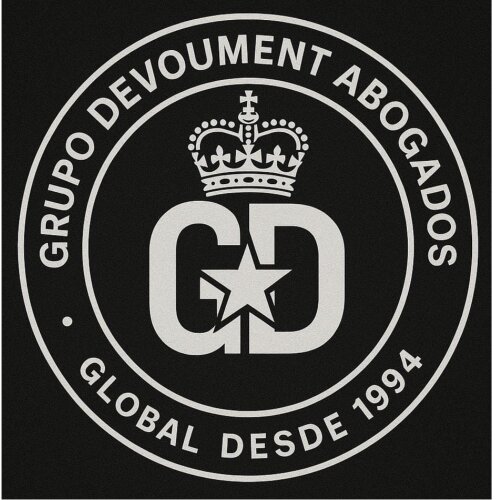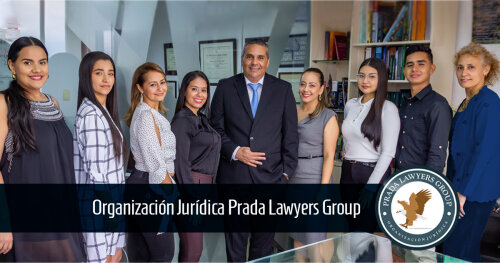Best Nonprofit & Charitable Organizations Lawyers in Colombia
Share your needs with us, get contacted by law firms.
Free. Takes 2 min.
Or refine your search by selecting a city:
List of the best lawyers in Colombia
About Nonprofit & Charitable Organizations Law in Colombia
Nonprofit and charitable organizations in Colombia are primarily governed by a combination of national laws and regulations. These organizations are legally recognized entities established with the intention of promoting social welfare, community development, or other purposes of public benefit without the intention of distribution of surplus funds to owners or stakeholders. In Colombia, nonprofits typically operate as foundations, associations, or cooperatives. The government provides a legal framework to ensure these entities operate transparently and with accountability, therefore ensuring that they benefit the intended groups or causes.
Why You May Need a Lawyer
Seeking legal advice in the field of nonprofit and charitable organizations can be crucial for various reasons:
- Formation and Registration: The process of forming and registering a nonprofit organization in Colombia is complex, requiring understanding of legal requirements and documentation.
- Compliance with Regulations: Ensuring ongoing compliance with regulations pertaining to financial reporting, tax obligations, and operational guidelines can be complicated.
- Governance Issues: Many organizations encounter challenges in governance, such as issues with boards of directors or internal policies.
- Contracts and Agreements: Drafting and reviewing contracts and partnership agreements require legal expertise to protect the interests of the organization.
- Employment Law Matters: Legal guidance can assist in managing employment contracts, benefits, and conflicts within the organization.
- Dispute Resolution: If disputes arise, legal intervention can be necessary to mediate and resolve issues effectively.
Local Laws Overview
Key aspects of local laws affecting nonprofit and charitable organizations in Colombia include:
- Regulatory Body: The Chamber of Commerce is involved in the registration and oversight of nonprofit entities.
- Tax Exemptions: Nonprofits may qualify for tax exemptions, provided they meet specific criteria outlined by Colombian tax authorities.
- Reporting Obligations: Organizations must adhere to financial and operational reporting requirements annually, ensuring transparency and accountability.
- Statutory Requirements: Nonprofits must establish and maintain bylaws and a governing board charged with the oversight of the organization's activities.
- Fiscal Responsibility: The government mandates financial audits and proper recordkeeping to prevent misuse of funds.
Frequently Asked Questions
1. What are the types of nonprofit organizations in Colombia?
Colombian law recognizes several forms of nonprofit entities, including foundations, associations, and cooperatives, each with specific purposes and governance structures.
2. How do I start a nonprofit organization in Colombia?
To start a nonprofit, you need to draft a statute, register with the Chamber of Commerce, obtain an NIT (Tax Identification Number), and comply with additional regulatory requirements.
3. What tax benefits are available for nonprofits in Colombia?
Nonprofits can receive tax benefits such as income tax exemptions, provided they comply with regulations and are engaged in activities recognized as beneficial to the public.
4. Are nonprofits in Colombia allowed to generate profit?
While nonprofits can engage in revenue-generating activities, any profit must be reinvested in the organization’s mission and activities, not distributed to individuals.
5. What are the reporting obligations for nonprofits?
Nonprofits must submit annual financial statements, reports on their activities, and maintain compliance with all regulatory requirements.
6. Can foreign citizens establish nonprofit organizations in Colombia?
Yes, foreign citizens can establish nonprofits in Colombia; however, they must comply with Colombian law and might require legal assistance to navigate the process.
7. What are the roles and responsibilities of a nonprofit's board?
The board provides governance, strategic direction, oversight of financial management, and ensures the organization fulfills its mission and complies with legal obligations.
8. How are nonprofit organizations regulated in Colombia?
Regulation is handled through the Chamber of Commerce and supervised by various government entities that ensure compliance with the legal framework.
9. What happens if a nonprofit does not comply with regulations?
Failure to comply may result in penalties, loss of tax-exempt status, or deregistration, making it critical for organizations to understand and adhere to all requirements.
10. Can nonprofits in Colombia engage in political activities?
Nonprofits are generally restricted from political campaigning or lobbying, as their primary purpose is serving public good, not influencing political processes.
Additional Resources
For more information, the following resources may be helpful:
- Chamber of Commerce: Responsible for the registration and certification of nonprofit entities.
- DIAN (National Tax and Customs Direction): Provides guidelines on tax exemptions and obligations for nonprofits.
- Superintendency of Industry and Commerce: Regulates the commercial aspects of nonprofit organizations.
- Local Legal Aid Organizations: Offer free or low-cost legal advice and support for nonprofits.
Next Steps
If you require legal assistance within the nonprofit and charitable sector in Colombia, consider the following steps:
- Consult with Specialized Lawyers: Seek legal professionals specialized in nonprofit law to navigate complex legal scenarios.
- Perform In-depth Research: Familiarize yourself with Colombian nonprofit law to better understand your rights and obligations.
- Engage with Professional Networks: Join networks and forums for nonprofit leaders to gain insights and advice on managing legal issues.
- Contact Regulatory Bodies: Reach out to relevant governmental agencies for official advice and guidance on compliance and registration.
Lawzana helps you find the best lawyers and law firms in Colombia through a curated and pre-screened list of qualified legal professionals. Our platform offers rankings and detailed profiles of attorneys and law firms, allowing you to compare based on practice areas, including Nonprofit & Charitable Organizations, experience, and client feedback.
Each profile includes a description of the firm's areas of practice, client reviews, team members and partners, year of establishment, spoken languages, office locations, contact information, social media presence, and any published articles or resources. Most firms on our platform speak English and are experienced in both local and international legal matters.
Get a quote from top-rated law firms in Colombia — quickly, securely, and without unnecessary hassle.
Disclaimer:
The information provided on this page is for general informational purposes only and does not constitute legal advice. While we strive to ensure the accuracy and relevance of the content, legal information may change over time, and interpretations of the law can vary. You should always consult with a qualified legal professional for advice specific to your situation.
We disclaim all liability for actions taken or not taken based on the content of this page. If you believe any information is incorrect or outdated, please contact us, and we will review and update it where appropriate.
Browse nonprofit & charitable organizations law firms by city in Colombia
Refine your search by selecting a city.














